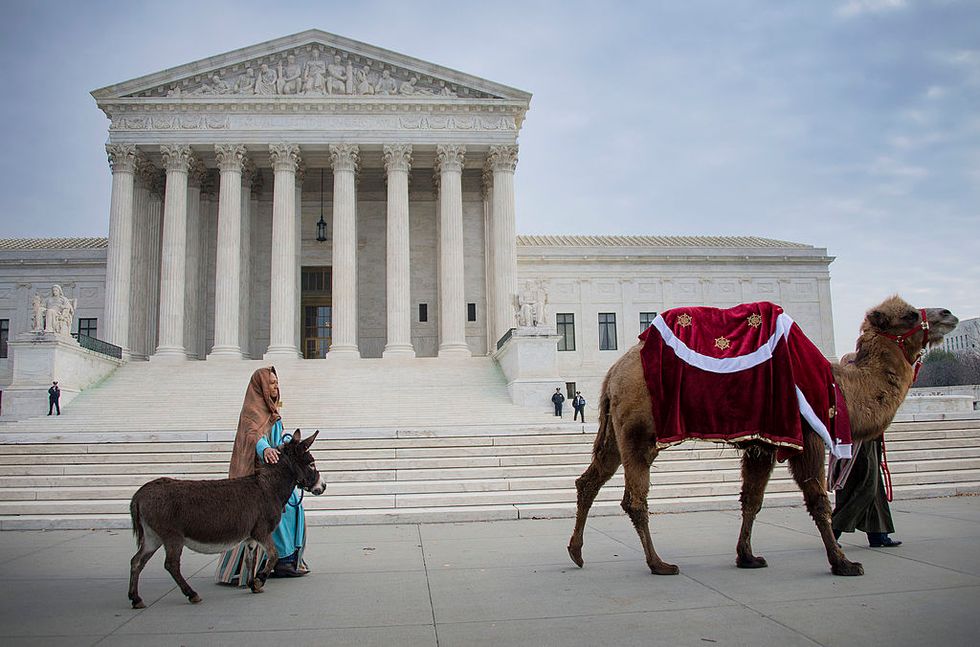
A live Nativity walks in procession on Capitol Hill in Washington, DC, December 3, 2013. (JIM WATSON/AFP/Getty Images)

Just in time for Christmas, the Pew Research Center has released five facts about how Americans celebrate the holiday.
Pew found that 92 percent of Americans celebrate Christmas, including 96 percent of Christians.
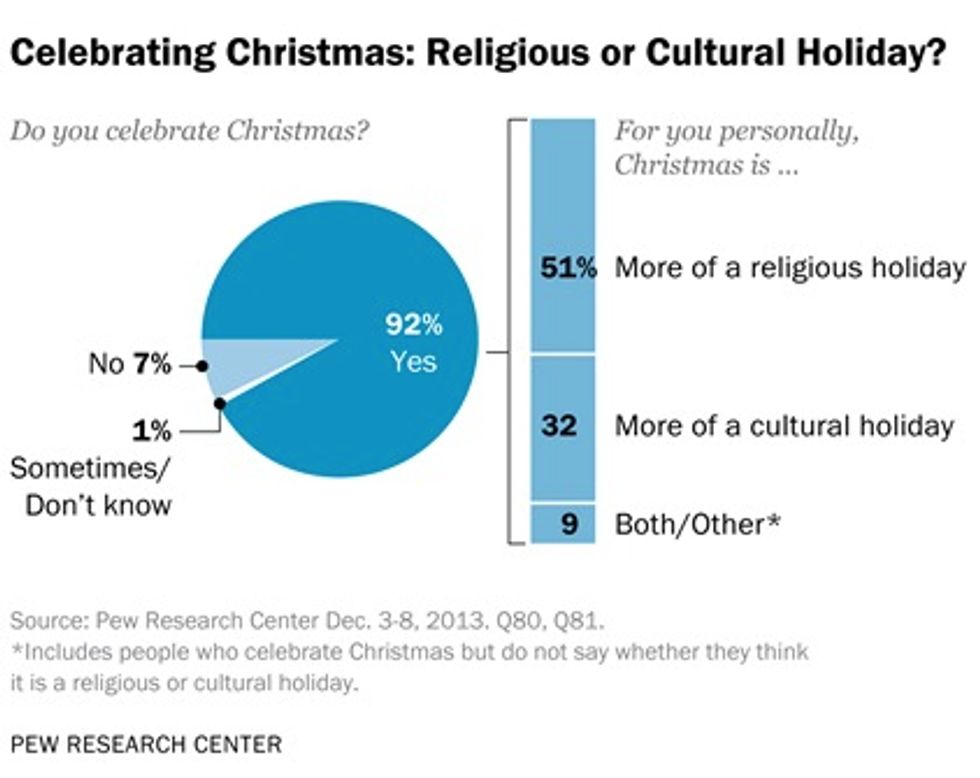
It also includes a strong majority of non-Christians — 81 percent of whom say they celebrate the holiday.
Eighty-seven percent of people who don’t practice a religion celebrate the holiday, as do 76 percent of American Buddhists, 73 percent of American Hindus, and 32 percent of American Jews.
Fifty-one percent of Americans said they celebrate Christmas as a religious holiday, and 32 percent said they celebrate it as a cultural one.
Forty-two percent of Americans said they prefer “Merry Christmas,” while 12 percent chose “Happy holidays.”
Forty-six percent said it “doesn’t matter.”
Forty-four percent of Americans said Christian symbols such as the Nativity should be allowed on public property.
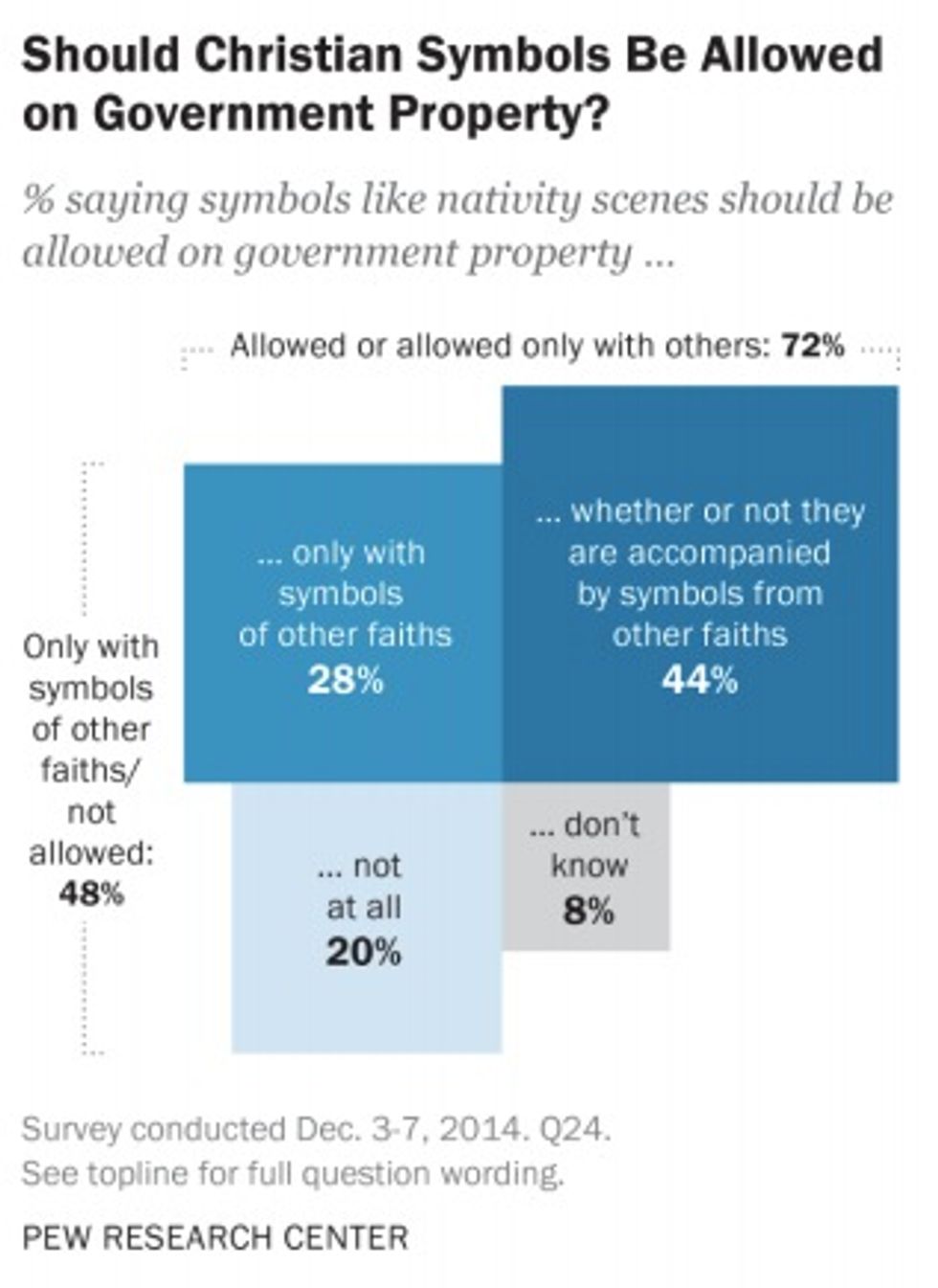
Twenty-eight percent said that Christian symbols should only be allowed if symbols of other faiths may accompany them, and 20 percent said Christian symbols shouldn’t be allowed on public property at all.
Pew asked Americans if Jesus was born to a virgin, if he was laid in a manger, if wise men brought gifts to him, and if an angel of the Lord appeared to shepherds to announce his birth.
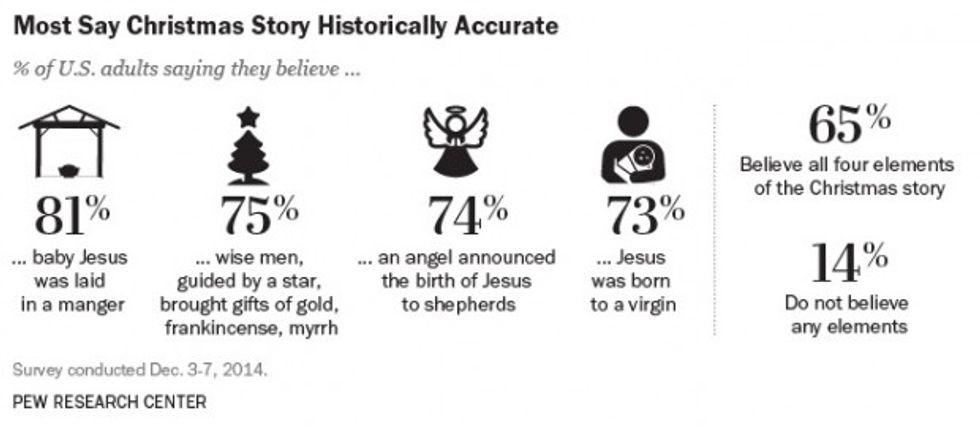
Sixty-five percent of American adults said that they believed all four aspects “actually happened,” and 14 percent said that none of those things happened.
Fifty-three percent of Americans said they have mixed feelings about giving and receiving gifts, while 37 percent said that they have only positive feelings, and a mere 7 percent said they have only negative feelings.
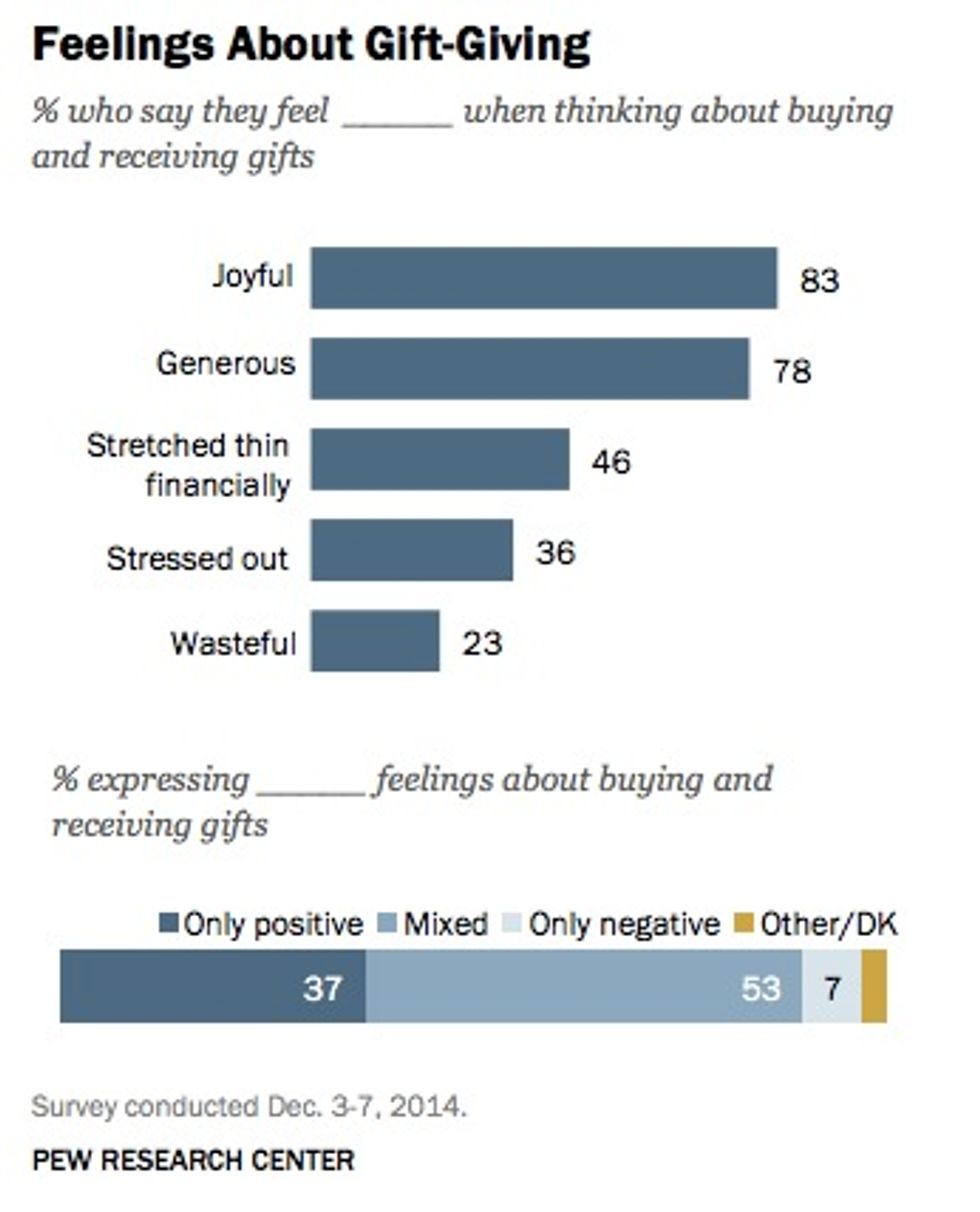
Most Americans said that gift-giving and receiving makes them feel “joyful” or “generous,” while 46 percent said it raises concerns about their finances. Thirty-six percent said it makes them feel “stressed out” and 23 percent said it makes them feel “wasteful.”
—
Follow Kate Scanlon (@kgscanlon) on Twitter